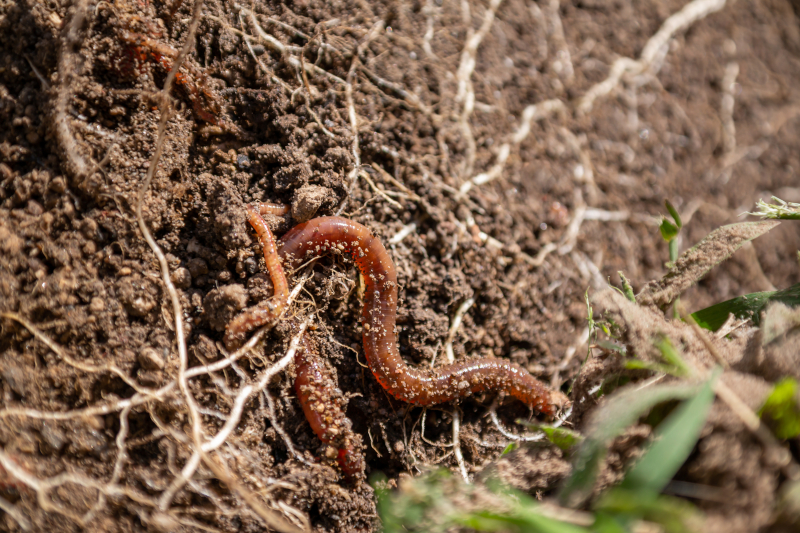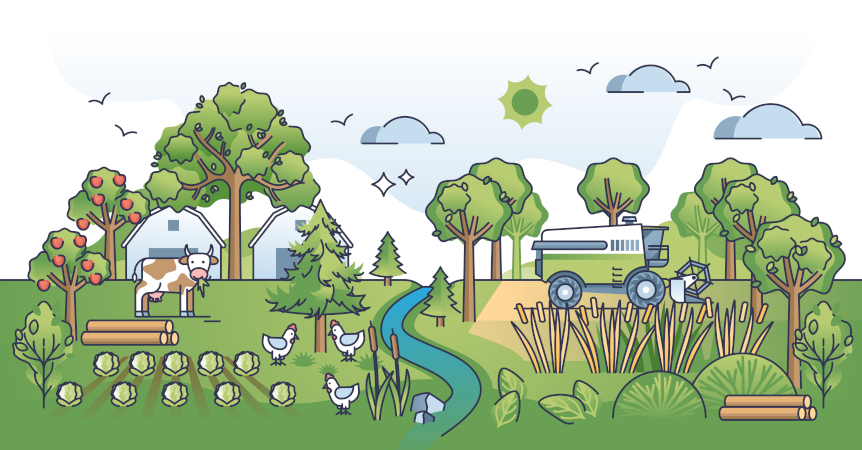Research
Our research covers 4 Main areas:
Soil organic matter | Plant-microbe interactions | Ecological practices and applications | Systems thinking

Microbial role in soil C cycling and soil health
Intensive agricultural activities often deplete soil organic matter (SOM), the largest terrestrial C pool, leading to land degradation, declining soil fertility, and increased CO2 emissions. Understanding the interactions of soil microbes and agricultural management practices on microbial SOM turnover is critical for the adoption of proper management practices to maintain or improve soil organic C levels. At PAL, we aim to delve deep into the roles that soil microbes play in C cycling, and how they interact with plants and soil minerals under various conditions. Understanding these ecological interplays is crucial for developing management strategies that foster a more sustainable and resilient agricultural system.
Organic agriculture: Benefits, challenges and opportunities
Organic agriculture has demonstrated benefits in building soil health in agricultural systems, including increasing soil organic matter, nutrient supply, and water holding capacity. However, inadequate management such as intensive tillage that is often required for weed control in organic agriculture can also lead to soil degradation. Designing and optimizing organic systems—considering factors like rotations, tillage regimes, and fertility management—is essential to ensuring continued societal benefits. At PAL, we evaluate the advantages of implementing innovative practices rooted in ecological principles, such as reduced tillage, unique crop rotations, and integrated pest management, to enhance both soil health and the productivity of organic systems.


Reimagining farming: Embracing diversity and ecological enhancement to unveil the multifaceted functions of agroecosystems
As humanity faces myriad challenges and the agricultural sector evolves rapidly, it's imperative to reexamine conventional approaches and consider multiple dimensions of agroecosystem functions. We seek to delve deep into this transformative journey. At PAL, we aim to shed light on how agroecosystems, when bolstered by diversity and ecological improvements, can unveil a plethora of multifunctional benefits.
